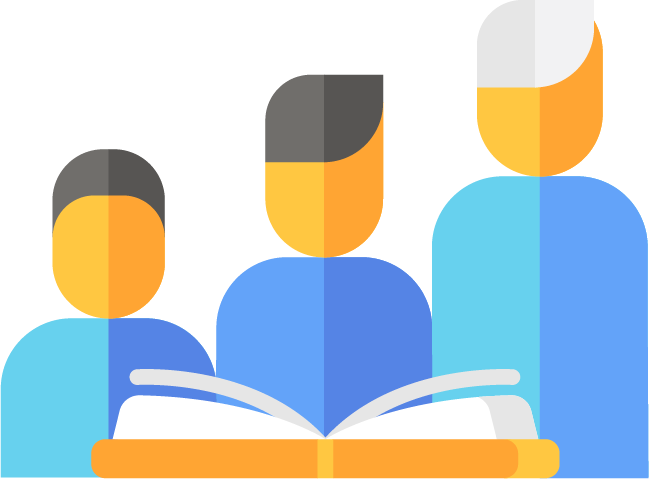Über
Das Projekt DIGITALLI soll die Kapazitäten von Einrichtungen für lebenslanges Lernen und Anbietern von Erwachsenenbildung zur Entwicklung und Umsetzung von Aktionsplänen für die digitale Transformation stärken. Dies wird zur Modernisierung der von Bildungsträger*innen angebotenen Lernmöglichkeiten beitragen, die erwachsene Lernende durch die Förderung der Nutzung von Europass Digital zu digitaler Kompetenz befähigen werden.
Qualifikationsinfrastruktur (EDCI), Europäisches Zertifikat für digitale Kompetenzen (EDSC) und das DigComp-Rahmenwerk. Die Ziele des DIGITALLI-Projekts werden durch die Förderung eines ganzheitlichen, systemorientierten Ansatzes erreicht, der auf den vier Schlüsselaspekten für die digitale Transformation von Organisationen für lebenslanges Lernen basiert: Humankapital, Integration von Technologie, Infrastrukturen sowie Forschung und Entwicklung im Bereich IKT.
Zu den Hauptaktivitäten gehören die Entwicklung eines Toolkits zur Umsetzung von Strategien für die digitale Transformation, eines digitalen Expert*innensystems und eines Weiterbildungsprogramms für Lehrkräfte.
Projektziel
Das Projekt zielt darauf ab, die Kapazitäten von Einrichtungen für lebenslanges Lernen und Erwachsenenbildung auszubauen, damit diese Strategien zur digitalen Transformation umsetzen, ihre Praktiken modernisieren und die Nutzung der neuesten Rahmenwerke für digitale Kompetenzen von Erwachsenen fördern können.

ZIELGRUPPEN

Erwachsenenbildungsanbieter
Institutionen für lebenslanges Lernen

Führungskräfte und Verwaltungspersonal
von Institutionen für lebenslanges Lernen

Adult educators and trainers

Erwachsene Lernende

Stakeholders Policymakers
ZIELE

Aufbau der Kapazitäten von Führungskräften in Einrichtungen der Erwachsenenbildung zur Entwicklung und Umsetzung von Aktionsplänen für digitale Bildung, die KI-Technologien integrieren.

Aufbau der Kapazitäten von Erwachsenenbildner*innen zur Modernisierung und Digitalisierung ihrer Lehrmethoden mithilfe von KI-Anwendungen, Förderung der digitalen Kompetenz erwachsener Lernender unter Verwendung der Rahmenwerke DigCompEdu und TPACK.

Entwicklung innovativer Qualitätsressourcen für Führungskräfte und Lehrkräfte in der Erwachsenenbildung, darunter ein praktisches Toolkit, ein Expertensystem für digitale Transformation und ein Schulungsprogramm, das sie in ihrer täglichen Praxis unterstützt.

Förderung der KI-orientierten digitalen Transformation von Einrichtungen der Erwachsenenbildung und des lebenslangen Lernens durch Kapazitätsaufbau und Vorbereitung der Akteur*innen im Bereich der Erwachsenenbildung.
PARTNER
Meta4 Innovations ist eine Forschungs- und Entwicklungsorganisation, die sich intensiv damit beschäftigt, die Bedürfnisse der Menschen zu verstehen, und die bestrebt ist, Dienstleistungen von höchster Qualität und innovative Lösungen anzubieten, die das Leben verändern. Meta4 entwirft und entwickelt innovative Tools, Methoden, Produkte und Dienstleistungen in den Bereichen digitale Lerninnovation, Unternehmertum, nachhaltige Entwicklung, soziale Inklusion und technologiegestützte Lösungen, die pragmatisch auf aktuelle soziale und wirtschaftliche Herausforderungen reagieren und gleichzeitig die Veränderungen vorhersehen und intuitiv vorantreiben, die zur Erreichung der zukünftigen Ziele einer nachhaltigen Lerngemeinschaft erforderlich sind. Meta4 unterstützt die Rationalisierung von Bildungssystemen und passt Bildungsprogramme an den aktuellen sozioökonomischen Kontext an. Meta4 verfügt über umfassende Fachkenntnisse und langjährige Erfahrung in der Entwicklung innovativer Lehr- und Lernmethoden, Tools und Ressourcen und hat sich auf die Konzeption von EQF- und ECVET-basierten Ausbildungslehrplänen für private und öffentliche Bildungseinrichtungen im Bereich der beruflichen Bildung, Erwachsenenbildung und Schulbildung spezialisiert. Meta4 hat digitale Ausbildungsplattformen für APP-basiertes Lernen entwickelt, um das Potenzial digitaler Technologien für das Lehren und Lernen zu nutzen und digitale Kompetenzen für alle zu entwickeln.
The Trebnje Center for Education and Culture is a public organization, established by the Trebnje municipality to promote and develop adult education. The organization has two units: Gallery for naïve art and Adult education center. CIK Trebnje is also the lead partner of Local Action Group Suhe krajine, Temenice in Krke (LAG STIK). LAG STIK is a regional association of representatives of public institutions (public sector), economy (economic sector) and civil society (private sector). The adult education center offers a comprehensive range of education programmes: from elementary school for adults to secondary education programmes, as well numerous non-formal education programmes (general education, training and courses). In recent years, increasing attention has been given to various projects that develop and encourage lifelong learning among different target groups, to raise the level of literacy, especially the socially weak (elderly, rural residents, members of the Roma community, special needs persons, the unemployed, young, persons serving a prison sentence, etc).
The Rural Hub was first established as an association in 2012 by a group of education, training and rural development professionals as a response to the impact of the economic crisis on small rural villages and towns in Ireland. The Rural Hub works within the rural economy and society in Ireland. Through their work in Erasmus+ projects, their aim is to bring educational innovation to the rural communities, where many services are lacking and where there is a gap in the provision of quality education pathways beyond school education. In their region, there is no third level education provider, meaning that many young people leave their communities, should they wish to continue their education. Through their work in the community, their aim is to bridge the gap between education offers which are available to urban learners, by bringing some diversity and innovation to the education offering in the rural towns and villages where they operate. The Rural Hub has been providing a wide range of community development courses for local residents to support greater community involvement and enhanced social inclusion, targeting growing isolation to achieve the integration of migrant communities with the host communities and their counterparts in other migrant communities. It targets a major part of its actions at people who have moved into the local area in the last 10 years which includes a significant Ukrainian, Polish, Lithuanian, Romanian and South American and South African population.
CARDET360 is an independent social innovation organization that emerged from the rich heritage of CARDET (www.cardet.org), an international non-profit renowned for its global expertise in diverse settings. While distinct in its focus, operations, and status, CARDET360 shares the foundational principles, values, and expertise, bringing a large portfolio of initiatives in diverse sectors including education, inclusion, digital transformation and digital skills, health and wellbeing. Its international team of experts have decades of global expertise in education research and development. CARDET is a full member of ALL Digital, a Pan-european network of more than 25,000 digital competence centers promoting digital transformation and digital skills across Europe. CARDET is a formal member of the Digital Skills and Jobs Coalition.
The University of Nicosia (UNIC) was established in October 2007, and it is the largest university in Cyprus with over 12,500 students from across the globe. Located in Nicosia and with a presence in 18 other cities worldwide, the institution employs more than 1000 staff faculty. Its research staff conducts cutting-edge research on social issues and innovative teaching and training approaches, including Artificial Intelligence. UNIC offers 41 bachelor’s, 37 master’s, 30 doctoral, and 29 distance learning degrees, utilizing the latest technologies and learning design theory to develop students’ critical analysis, reflection, and problem-solving skills. Its state-of-the-art premises and eLearning platform provide access to extensive online learning resources, fostering a multicultural learning environment. Through its participation in projects as a partner or coordinator, the University has developed a wide base of knowledge and expertise in research output and project management.
